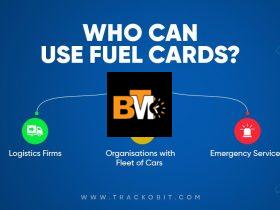Starting a creative brand requires more than just innovative business ideas—it demands a strategic approach that blends passion with practicality. For artists, writers, and designers, small business ideas often emerge from unique talents, but transforming these creative sparks into sustainable ventures is the key to success. Building a compelling brand identity—whether through business images, messaging, or the overall brand experience—is essential for connecting with your audience and standing out in a competitive market.
Whether you’re exploring online business ideas or brainstorming business name ideas, this guide will help illuminate your entrepreneurial path. We’ll explore strategies for evaluating the potential of your ideas for business while ensuring they align with your artistic vision and market demands.
How to understand what small business ideas are suitable for you
Choosing the best ideas for business requires careful consideration of your abilities, market needs, and available resources. Here’s a step-by-step approach:
Assess your skills and passions
Start by identifying your strengths and interests. Are you a skilled artist, a talented writer, or someone who excels at creating handmade crafts? Focusing on small business ideas that align with your passion makes your venture more enjoyable and sustainable in the long run. Consider the following:
- Track activities where you lose track of time;
- Map unique skill combinations that differentiate you;
- Review projects that garnered exceptional feedback;
- List passion-driven creative pursuits;
- Document specialized expertise from experience.
Research market demands
Look into current trends and gaps in the market. Is there a growing demand for sustainable products or personalized services? Understanding what people need can help shape your ideas of business into profitable opportunities.
- Survey creative communities for insights;
- Track search trends for artistic services;
- Study successful businesses in your niche;
- Monitor social media conversations;
- Research pricing across markets.
Define your unique value proposition (UVP)
Determine what sets your business apart from others. Whether it’s offering eco-friendly materials, a distinctive artistic style, or exceptional customer service, your unique value proposition can make your business ideas stand out in a competitive market.
Evaluate your resources
Consider the tools, time, and budget available to you. Some ideas for business require minimal investment, while others may need more substantial funding or expertise. Choosing realistic and achievable options is key to getting started. To evaluate your resources effectively:
- Define weekly hours for business development;
- Calculate startup costs and savings;
- Inventory existing tools and equipment;
- Identify workspace options that fit your business needs and budget;
- List professional network contacts;
- Assess digital skills and resources;
- Review training requirements.
Top 5 ideas of small business ventures for creatives
Creative individuals have a wealth of ideas for business to explore. Here are five inspiring options:
Custom art and design studio
Transform your artistic talent into a business by offering custom art and design services. Create commissioned paintings, personalized illustrations, or unique digital designs that cater to individual or corporate clients. This is a great way to turn your skills into a thriving online business idea.
Focus on developing a distinctive style while maintaining professional standards. Build your reputation through portfolio development, client testimonials, and strategic partnerships.
Handmade crafts and jewelry business
Handmade items, such as jewelry, candles, or home decor, remain popular due to their personal and unique touch. Selling through platforms like Etsy or your website can turn this hobby into a lucrative business idea. To set your business apart with excellence:
- Create distinctive product lines with cohesive themes;
- Master scalable pricing strategies;
- Establish a presence on artisan marketplaces;
- Develop efficient production workflows;
- Build supplier relationships;
- Document creation processes;
- Implement quality standards.
Creative writing and content creation
If you enjoy storytelling or have a knack for writing, consider starting a business in creative writing or content creation. This can range from writing blogs and marketing copy to publishing books or creating scripts for videos—a versatile small business idea with high demand.
Photography and videography services
For those with an eye for detail, starting a photography or videography service can be a fulfilling and profitable venture. Offer your expertise for events, product shoots, or digital content creation, and explore innovative ways to showcase your artistry. You can:
- Create compelling corporate promotional content;
- Develop personal branding photoshoots;
- Launch commercial real estate services;
- Provide family portrait sessions;
- Produce social media content bundles;
- Master aerial photography offerings.
DIY and art workshops
Share your skills with others by hosting DIY or art workshops. Teach participants how to create pottery, paint, or craft handmade gifts. This business idea allows you to engage with your community and builds a platform for showcasing your expertise.
To elevate your workshop offerings:
- Design skill-level targeted workshop series;
- Create hybrid learning experiences;
- Develop comprehensive materials and supply kits;
- Partner with creative venues;
- Launch exclusive masterclasses;
- Implement tiered pricing;
- Build recurring memberships.
Key aspects of testing business ideas before launching
Before diving into a new venture, validating your business ideas to ensure they have potential is essential. Here’s how:
- Start small. Begin with a minimal viable product (MVP) or offer limited services to gauge interest, such as selling a small batch of handmade crafts or hosting a trial workshop.
- Seek feedback. Reach out to friends, family, and potential customers for honest opinions to refine your small business ideas.
- Test the market. Use tools like social media, online surveys, or pop-up shops to evaluate demand for your business ideas.
- Analyze costs and revenue potential. Estimate production costs, pricing strategies, and potential revenue to ensure financial viability.
- Be ready to pivot. Stay flexible and adapt your approach based on market feedback if your initial business ideas don’t work as planned.
Summing up
Turning creative passions into successful ventures begins with finding the right business ideas. By assessing your skills, understanding market demands, and testing your ideas, you can create a business that aligns with your goals. Whether starting a custom art studio, offering DIY workshops, or exploring other ideas for business, stay adaptable and open to feedback. Thoughtful planning and persistence can turn your creative talent into a thriving business. And remember, choosing memorable business name ideas is the first step to bringing your dream to life.





Leave a Reply